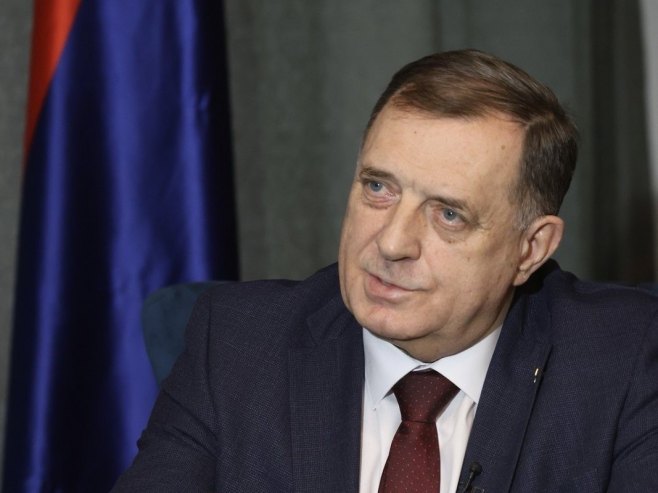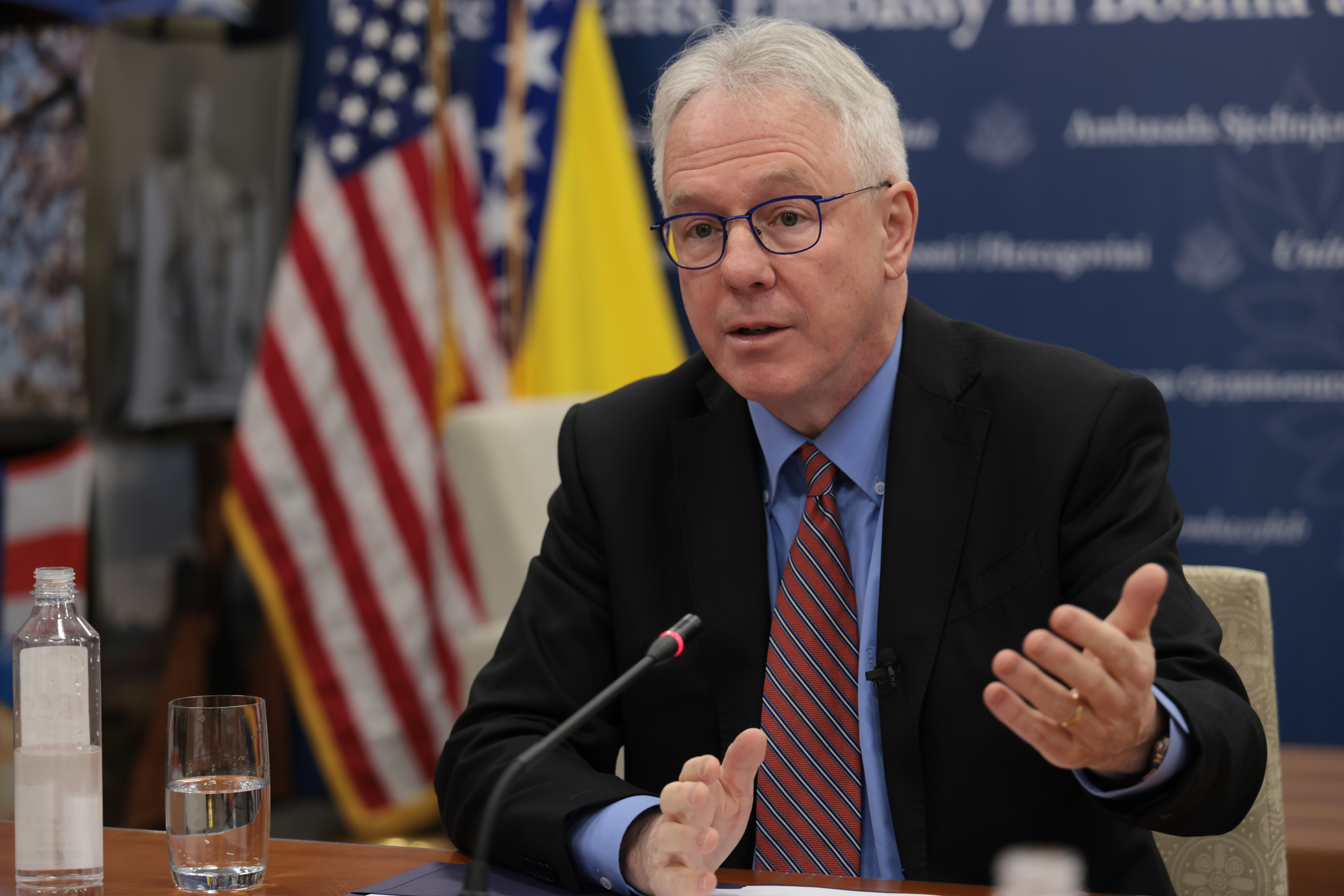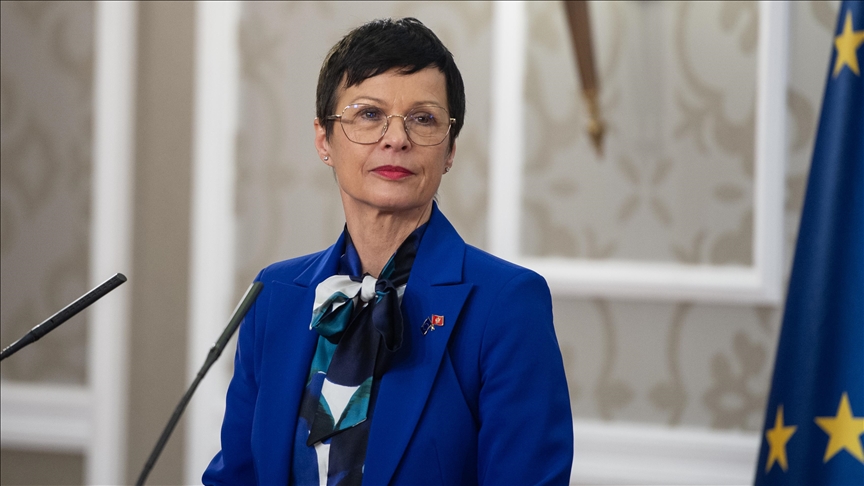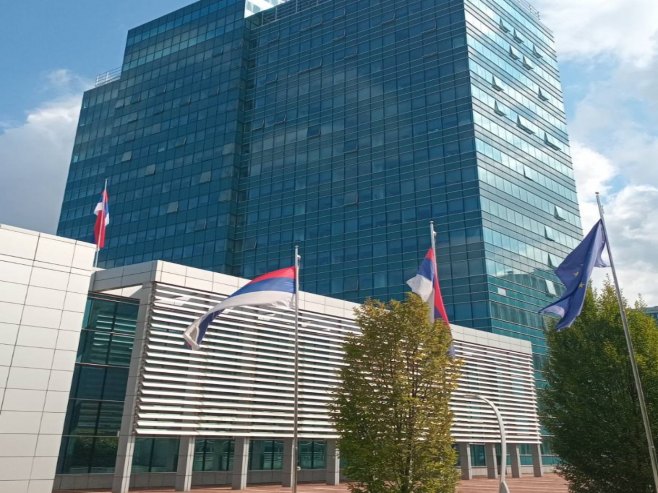The Office of the High Representative (OHR), established in 1995 after the signing of the Dayton Peace Agreement, has spent at least 140 million euros, a significant portion of which has gone to the salaries of High Representatives whose task was to ensure the consistent implementation of the peace document.
For the past and current year, during the illegitimate mandate of Christian Schmidt, the OHR budget has been 5.85 million euros annually, roughly the same as during Valentin Inzko’s tenure. Half of this funding comes from the European Union, which had proposed a reduction in funding a few years ago, believing the office should be closed. The International Crisis Group held a similar view, suggesting the OHR had outlived its purpose. This topic resurfaced after BiH received candidate status for EU membership at the end of last year. However, Schmidt and his mentors emphasized that much work remains unfinished in BiH. Schmidt even requested an increased budget, warning that BiH could fall apart without the OHR, openly boasting about the unlimited power he allegedly possesses.
Financial Gains
All previous High Representatives have significantly profited from their roles in BiH. Swedish diplomat Carl Bildt earned 450,000 euros in 18 months, and similar amounts were earned by Christian Schwarz-Schilling and Miroslav Lajčák. Spaniard Carlos Westendorp, who served from June 1997 to July 1999, earned a total of 625,000 euros, while Wolfgang Petritsch earned 800,000 euros in 32 months. The highest earner was Paddy Ashdown, with a total of 1.1 million euros.
The earnings of Austrian Valentin Inzko, who holds the record for the longest tenure in BiH (12 years and five months), are unknown. Towards the end of his mandate, he reduced his salary by four-fifths, stating it was then 5,000 euros, implying previous monthly earnings of about 25,000 euros. Inzko’s total earnings over 77 months ranged between 1.7 and 1.9 million euros, excluding other benefits, and this income is tax-free. Inzko will be remembered for the censorial decree he unlawfully issued just before leaving office, criminalizing the expression of certain views on the war in BiH.
Motivation
High Representatives have never publicly disclosed their salaries, much like Schmidt, who has been illegitimately occupying the High Representative’s chair for three years. Recently, the President of Republika Srpska, Milorad Dodik, claimed Schmidt’s salary is 24,000 euros, potentially reaching 40,000 euros with travel expenses and life insurance. Schmidt called these speculations inaccurate but did not reveal the actual amount.
Even if Schmidt’s salary is slightly lower, he is still making substantial money for his illegitimate tenure. If everything is calculated, Schmidt has likely earned around a million euros so far, approximately 300,000 euros annually, which is nearly 20% more than the current German Chancellor Olaf Scholz’s salary. Scholz’s official gross salary is 20,179 euros monthly, equivalent to an annual base salary of around 242,000 euros. For comparison, German ministers currently earn about 16,000 euros per month. Considering other financial benefits, Schmidt could have earned up to 1.4 million euros so far.
Political Violence
If salary is a measure of work value and reward, the question remains what previous High Representatives, especially Ashdown, Inzko, and Schmidt (not recognized by Republika Srpska), have done to deserve such amounts. Analysts and international law experts argue that Schmidt has been a major destabilizing factor, creating almost all crises in BiH. He has acted as both legislator and interpreter of the Dayton spirit rather than its letter, evident in his attempts to declare entity property as state property, which would undermine Republika Srpska’s existence.
Analyzing Schmidt’s three years of illegitimate work, international law expert Srđan Perišić states that it has involved open political violence aimed at dismantling Republika Srpska.
“Germany installed him in this position with clear directives and tasks. He will remain in BiH until he institutionally smothers Republika Srpska. Expect continued legal and constitutional violence, especially after the October elections. The Constitutional Court and the Court of BiH will assist him, and this established triad, supported by NATO, will not relent in undermining the Dayton Peace Agreement. I foresee a turbulent autumn, with Schmidt likely awaiting the outcome of the court case against President Dodik, hoping the Court of BiH removes Dodik from politics to further his anti-Serb campaign. Property issues will surely be next, with help from the Constitutional Court of BiH,” Perišić told “Glas Srpske.”
Focus on Resources
Vitomir Popović, a professor at the Faculty of Law in Banja Luka, similarly believes Schmidt’s three years of illegitimate and violent actions have returned BiH to the beginning, i.e., the 1990s.
“Where Inzko left off, Schmidt continued, furthering internal conflicts in BiH. Over three years, he has regressed all democratic processes, and ironically, he is rewarded with an enormous salary of 50,000 marks and diplomatic privileges. The strangest and most tragic part is that Bosniaks, who swear by BiH’s sovereignty, support him, allowing the state to become a protectorate,” said Popović, adding that nothing good can be expected from Schmidt, who will continue to parasitize in BiH, jeopardizing its existence while fulfilling the wishes and directives of the US ambassador.
Popović asserts that everything revolves around property, creating conditions for Western companies to easily access valuable natural resources.
“This mainly concerns mineral wealth. Srpska, for instance, is rich in lithium, but let’s not forget water, with which we are abundant, as well as forests and energy potentials. If property ownership is elevated to the state level, it would likely quickly fall into the hands of major Western companies. Unfortunately, Bosniaks are willing to be serfs, sacrificing all natural resources for a unitary BiH, with Schmidt acting like a feudal envoy to expedite these processes,” Popović concluded.
Double Standards
Emir Suljagić, director of the Memorial Center in Potočari, recently stirred public opinion in Republika Srpska with sharp statements against the EU delegation in BiH for laying wreaths in Bratunac for innocent civilian victims of the past war. He claimed that Dayton enslaved Bosniaks and should be abolished. Interestingly, Schmidt did not react to these calls and statements, nor to Defense Minister Zukan Helez’s calls for a new war, just as he hadn’t reacted countless times before.
Source: Glas Srpske









